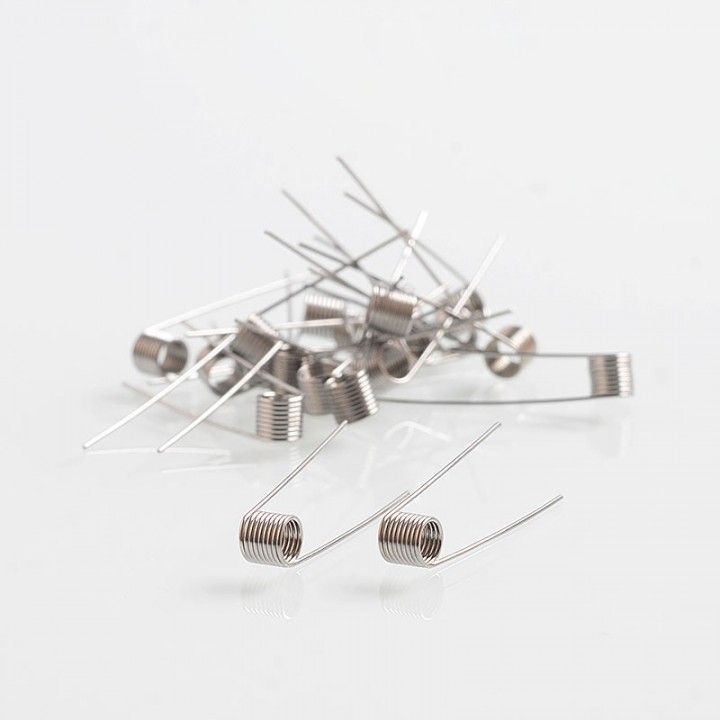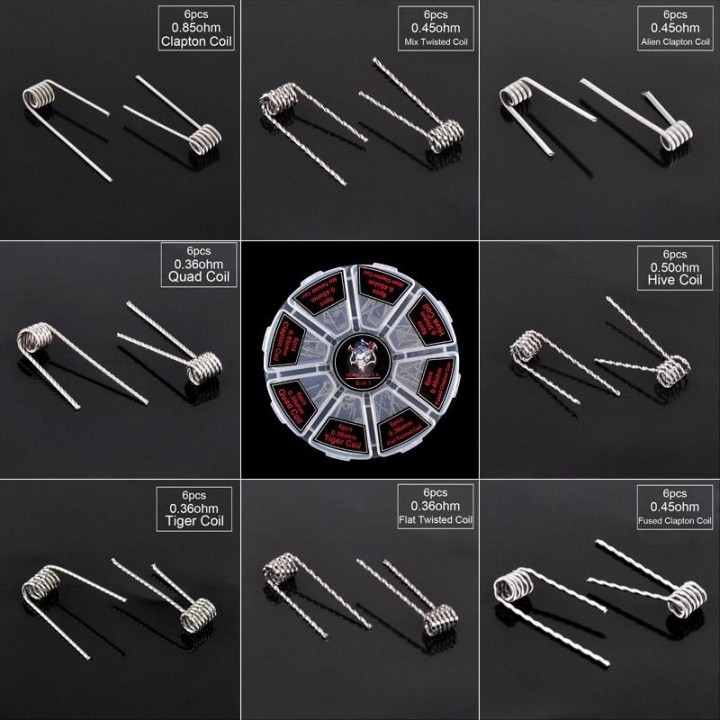In the past, those who haven't used an RBA or RDTA should definitely try this coil type, which is favored by professionals. RBA refers to the coils that can be wicked by users of
electronic cigarettes or electronic hookahs. RBA stands for Re-Buildable Atomizer. An RBA can be easily set up with a little cotton and wire. Since wicking requires skill, this atomizer coil is generally preferred by professional users. It's possible to achieve high vapor density and intense flavor with a re-buildable atomizer coil. To wick, it's essential to have wicking wire and Japanese cotton. While various atomizer wire types are generally useful, Kanthal wire is particularly recommended.

Cotton Types
The cotton used for RBA wicking is divided into two types: Cotton Bacon and Muji. Cotton Bacon refers to cotton that has been pre-rolled into a cylinder shape for easy insertion into the coil. There are five different types of wicking wire that e-cigarette users can use for building coils.
Kanthal Wire
Kanthal has become popular because it's a convenient and practical wicking wire. Kanthal can withstand high temperatures. Kanthal wire should especially be used by those new to building atomizer coils. This wicking wire is both more affordable than other wires and more pliable due to its elastic structure, making it easier to shape.

Nichrome Wire
Nichrome wire, being a nickel-chromium wicking wire, transfers heat much faster and more quickly compared to Kanthal wire. It also consumes less energy because it can produce denser vapor. Nichrome wire is not widely preferred in Turkey due to its high price.
Nickel Atomizer Wire
Nickel atomizer wire heats up much faster than other wires because it's an extremely conductive wire. However, an excessively hot atomizer wire can cause certain parts of the atomizer coil to melt due to the extreme heat.
Titanium Atomizer Wire
This wire conducts heat very quickly and powerfully. Therefore, it is frequently preferred by foreign e-cigarette users.
Stainless Steel
This wire makes the e-liquid flavor sharper. It is not very common in Turkey.







